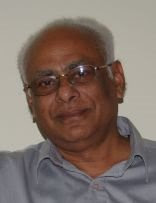Jesus
believed himself to be a messiah in the kingly line of David sent by God to
establish his kingdom on earth among his chosen people, the Jews. He did not
start a religion after his name.
He
was put to death on the cross. The movement he started was taken up and led by
his brother James. However, it was smothered by the alternative movement
started by Paul which became the official Christianity of today.
Earlier,
I have given a brief CV of Paul. (April 8, 2015)
Around
the year A.D. 36 Paul had a “conversion” experience in which he claimed to have
“seen” Jesus in a “vision”. He said that he had received both a revelation
and a commission. The revelation was that ‘Jesus was the heavenly
exalted Christ’; the commission was that he, Paul, was to preach the good news
of ‘salvation through faith in Jesus to the Gentiles’. who were the non-Jews
Paul
was a contemporary of Jesus. Yet, he never mentions the crucifixion of
Jesus. His connections to Jesus was
based on “his own visionary experiences” in which he claimed to have
seen Jesus many years after crucifixion. He also claimed to hear a disembodied
‘voice’ that he identified as words of Jesus.
What Paul preached and taught:
·
Jesus was a divine pre-existent heavenly being.
·
He was created as the first born of all creation.
·
He existed in the form of God and was equal to God.
· The world was brought into existence by God through the
agency of Christ.
· He emptied himself, took the human form and was born of a
woman and sent into this world from heaven.
·
The purpose of his life on earth was to live without sin and
die on the cross as atonement for the sins of the world.
·
God then raised Christ from the dead and transformed him back
into his glorious heavenly body.
·
Christ then ascended into heaven and is seated in power and
glory at the right hand of God.
·
Those who accept the atoning sacrifice of Christ are forgiven
of all their sins.
·
At the second coming of Christ, both the living and the dead
would rise in the air to meet Christ in the clouds of heaven.
(T: p259-262)
Let
us now have a look at the Apostle’s Creed recited at Catholic masses.
|
The Apostles Creed
|
|
|
1.
I believe in God, the Father
almighty, creator of heaven and earth.
|
|
|
2.
I believe in Jesus Christ, his
only Son, our Lord.
|
|
|
3.
He was conceived by the power of
the Holy Spirit and born of the Virgin Mary.
|
|
|
4.
He suffered under Pontius
Pilate, was crucified, died, and was buried. He descended into
hell.
|
|
|
5.
On the third day he rose again.
|
|
|
6.
He ascended into heaven and is seated
at the right hand of the Father. He will come again to judge the living
and the dead.
|
|
|
7.
I believe in the Holy
Spirit, the holy Catholic Church, the communion of saints, the
forgiveness of sins, the resurrection of the body, and the life
everlasting.
As you can observe, much of this creed is taken from Paul’s teachings
based on his ‘visions’ and the ‘disembodied voice’ of Jesus.
Re-enactment of the Last Supper during Catholic Mass
Just like the ‘resurrection’ and physical ‘ascension’ of Christ, the
re-enactment of the ‘Last Supper’ during Christian mass has become another
corner stone of the Christian belief system. It was Paul who wrote that the
followers of Jesus should re-enact ‘the Lord’s Supper’ in which they would
drink wine as ‘blood’ of Jesus and eat bread as his ‘body’. Improper
observance of this meal could cause illness and even death. (T: p264)
[More on this when we get a chance to discuss the mythological origins
of Christian practices and rituals]
To conclude: Jesus
Christ is not the founder of Christianity. It is Paul of Tarsus, known
commonly as Apostle Paul, who established Christianity as we know it today in
the name of Christ, based on what he claimed as ‘visions’ of Christ during
which he heard the ‘disembodied’ words of Christ.
|

No comments:
Post a Comment